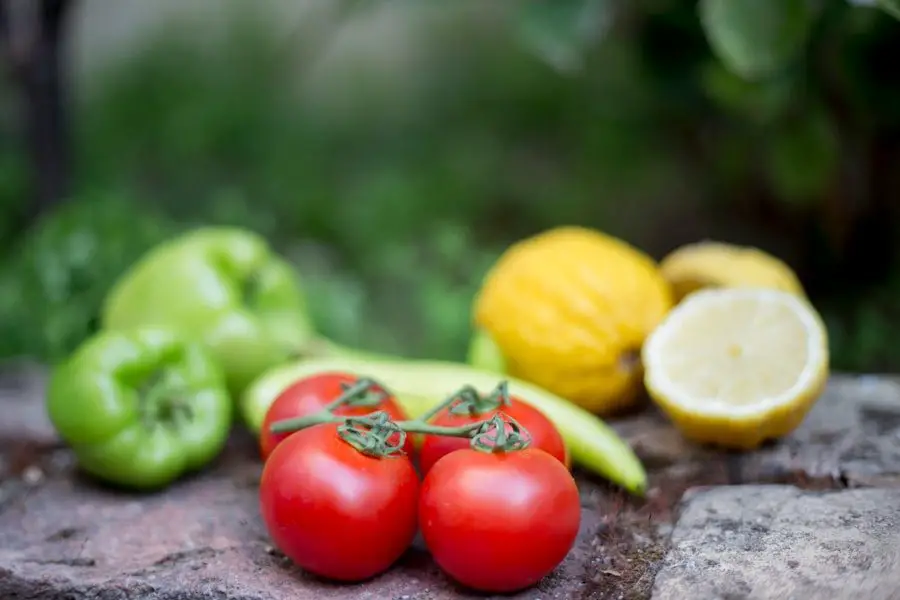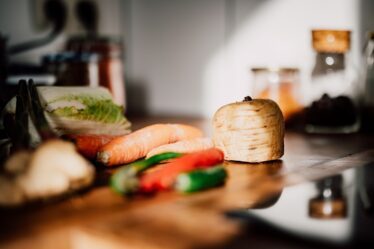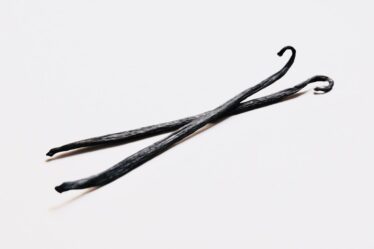
Lemon pepper spice rub is a versatile seasoning that has been used for centuries to enhance the flavor of various dishes. It is a combination of lemon zest, black pepper, and other spices, which are ground together to create a fine powder. Lemon pepper spice rub is commonly used in barbecue recipes, but it can also be used in everyday cooking to add a burst of flavor to any dish.
The history of lemon pepper spice rub dates back to ancient times, where it was used as a medicinal herb in traditional medicine. The combination of lemon and pepper was believed to have numerous health benefits, including aiding digestion and boosting the immune system. Over time, people began to use lemon pepper spice rub as a seasoning for their food, and it quickly became a popular ingredient in many cuisines around the world.
Key Takeaways
- Lemon pepper spice rub adds a tangy and zesty flavor to your BBQ dishes.
- Using lemon pepper spice rub can enhance the taste of your meat and provide health benefits.
- Making your own lemon pepper spice rub is easy and allows you to customize the ingredients to your liking.
- Lemon pepper spice rub pairs well with chicken, fish, and pork, but can also be used on vegetables and tofu.
- Applying lemon pepper spice rub evenly and generously is key to achieving a flavorful and juicy meat.
The Benefits of Using Lemon Pepper Spice Rub for Your BBQ
One of the main benefits of using lemon pepper spice rub for your BBQ is that it adds flavor and depth to your meat. The combination of lemon zest and black pepper creates a tangy and slightly spicy taste that complements the natural flavors of the meat. This can take your BBQ to the next level and impress your guests with its deliciousness.
Another benefit of using lemon pepper spice rub is that it helps tenderize the meat. The acidity from the lemon zest helps break down the proteins in the meat, making it more tender and juicy. This is especially beneficial for tougher cuts of meat, such as beef brisket or pork shoulder, which can benefit from the tenderizing effects of the lemon pepper spice rub.
In addition to its flavor-enhancing and tenderizing properties, lemon pepper spice rub also has several health benefits. Lemon is rich in vitamin C, which is known for its immune-boosting properties. Black pepper contains a compound called piperine, which has been shown to have antioxidant and anti-inflammatory effects. By using lemon pepper spice rub in your BBQ, you can not only enjoy a delicious meal but also reap the health benefits of these ingredients.
How to Make Your Own Lemon Pepper Spice Rub
Making your own lemon pepper spice rub is easy and allows you to customize the flavors to your liking. Here is a simple recipe to get you started:
Ingredients:
– 2 tablespoons lemon zest
– 2 tablespoons black pepper
– 1 tablespoon salt
– 1 tablespoon garlic powder
– 1 tablespoon onion powder
– 1 teaspoon dried thyme
– 1 teaspoon dried oregano
Instructions:
1. In a small bowl, combine all the ingredients and mix well.
2. Transfer the mixture to a spice grinder or mortar and pestle and grind until you have a fine powder.
3. Store the lemon pepper spice rub in an airtight container in a cool, dry place.
Tips for customization:
– If you prefer a spicier rub, you can add some crushed red pepper flakes or cayenne pepper.
– For a smoky flavor, you can add some smoked paprika or chipotle powder.
– Feel free to adjust the quantities of the ingredients to suit your taste preferences.
The Best Cuts of Meat to Use with Lemon Pepper Spice Rub
| Cut of Meat | Lemon Pepper Spice Rub Flavor Profile | Cooking Method | Recommended Internal Temperature |
|---|---|---|---|
| Chicken Breast | Bright and zesty with a hint of heat | Grill, bake, or pan-sear | 165°F (74°C) |
| Pork Tenderloin | Tangy and savory with a touch of sweetness | Roast or grill | 145°F (63°C) |
| Salmon Fillet | Refreshing and citrusy with a subtle kick | Bake or grill | 145°F (63°C) |
| Beef Sirloin Steak | Robust and zingy with a smoky undertone | Grill or pan-sear | 135°F (57°C) for medium-rare |
Lemon pepper spice rub can be used on a variety of meats, but certain cuts work better than others. Here are some recommendations for each type of meat:
– Beef: Lemon pepper spice rub pairs well with beef cuts such as ribeye, sirloin, and flank steak. These cuts have enough fat marbling to keep the meat juicy and flavorful when cooked with the rub.
– Chicken: Lemon pepper spice rub is perfect for chicken breasts, thighs, and wings. The tangy and slightly spicy flavors of the rub complement the mild taste of chicken.
– Pork: Pork chops, tenderloin, and ribs are great choices for using lemon pepper spice rub. The acidity from the lemon zest helps tenderize the meat and adds a burst of flavor.
– Lamb: Lamb chops and leg of lamb are excellent choices for using lemon pepper spice rub. The robust flavor of lamb pairs well with the tangy and slightly spicy flavors of the rub.
When using lemon pepper spice rub, it’s important to consider the cooking method as well. Grilling, roasting, or smoking the meat will allow the flavors of the rub to penetrate and infuse into the meat, resulting in a delicious and flavorful dish.
Tips for Applying Lemon Pepper Spice Rub to Your Meat
When applying lemon pepper spice rub to your meat, it’s important to use the right amount and apply it at the right time. Here are some tips to help you achieve the best results:
– Use enough rub to coat the meat evenly, but not too much that it overwhelms the natural flavors of the meat. A general rule of thumb is to use about 1 tablespoon of rub per pound of meat.
– Apply the rub just before cooking to ensure that the flavors are fresh and vibrant. If you apply it too early, the salt in the rub may draw out moisture from the meat, resulting in a dry texture.
– To ensure even distribution of the rub, pat the meat dry with a paper towel before applying the rub. This will help the rub adhere to the meat better.
– For larger cuts of meat, such as roasts or whole chickens, you can create a paste by mixing the lemon pepper spice rub with some olive oil or melted butter. This will help the rub adhere to the meat and create a flavorful crust.
How to Store Lemon Pepper Spice Rub for Future Use

To ensure that your lemon pepper spice rub stays fresh and flavorful for future use, it’s important to store it properly. Here are some tips for storing your spice rub:
– Transfer the spice rub to an airtight container, such as a glass jar or a plastic container with a tight-fitting lid. This will help prevent moisture and air from getting in and affecting the quality of the rub.
– Store the spice rub in a cool, dry place, away from direct sunlight and heat. Exposure to light and heat can cause the flavors to degrade over time.
– Check the expiration date on the ingredients used in the spice rub and use them before they expire. This will ensure that your spice rub stays fresh and flavorful.
– To test if your spice rub has gone bad, give it a sniff. If it smells musty or off, it’s best to discard it and make a fresh batch.
Creative Ways to Use Lemon Pepper Spice Rub Beyond BBQ
While lemon pepper spice rub is commonly used in BBQ recipes, there are many other creative ways to incorporate it into your everyday cooking. Here are some suggestions:
– Sprinkle lemon pepper spice rub on roasted vegetables for a burst of flavor. It pairs well with vegetables such as potatoes, carrots, and zucchini.
– Mix lemon pepper spice rub into softened butter and spread it on bread or rolls for a delicious flavored butter.
– Toss popcorn with melted butter and lemon pepper spice rub for a unique twist on a classic snack.
– Add lemon pepper spice rub to marinades for fish or shrimp to enhance their natural flavors.
– Mix lemon pepper spice rub into mayonnaise or Greek yogurt for a tangy and flavorful dip or dressing.
Pairing Lemon Pepper Spice Rub with Other Flavors for a Unique Taste
Lemon pepper spice rub can be paired with other flavors to create unique and delicious dishes. Here are some ideas for marinades and sauces that incorporate lemon pepper spice rub:
– Lemon Pepper Garlic Marinade: Combine lemon pepper spice rub with minced garlic, olive oil, lemon juice, and a touch of honey. Use this marinade for chicken, shrimp, or tofu for a tangy and flavorful dish.
– Lemon Pepper Dijon Sauce: Mix lemon pepper spice rub with Dijon mustard, lemon juice, honey, and a splash of white wine vinegar. This sauce pairs well with grilled or roasted meats.
– Lemon Pepper Yogurt Sauce: Combine lemon pepper spice rub with Greek yogurt, minced garlic, lemon juice, and chopped fresh herbs such as parsley or dill. This sauce is perfect for dipping vegetables or drizzling over grilled chicken or fish.
Lemon Pepper Spice Rub Recipes for Vegetarian and Seafood Dishes
Lemon pepper spice rub can be used to add flavor to vegetarian and seafood dishes as well. Here are some ideas:
– Lemon Pepper Tofu: Press tofu to remove excess moisture, then slice it into cubes or strips. Toss the tofu with lemon pepper spice rub and bake or pan-fry until crispy and golden brown.
– Lemon Pepper Roasted Vegetables: Toss your favorite vegetables, such as broccoli, cauliflower, or Brussels sprouts, with olive oil and lemon pepper spice rub. Roast in the oven until tender and slightly caramelized.
– Lemon Pepper Grilled Shrimp: Marinate shrimp in a mixture of lemon pepper spice rub, olive oil, minced garlic, and lemon juice. Grill the shrimp until cooked through and serve with a squeeze of fresh lemon juice.
– Lemon Pepper Baked Salmon: Rub salmon fillets with lemon pepper spice rub and bake in the oven until flaky and cooked through. Serve with a side of roasted vegetables or a fresh salad.
When using lemon pepper spice rub in vegetarian or seafood dishes, it’s important to adjust the quantities to suit your taste preferences. Start with a small amount and add more if desired.
Where to Buy High-Quality Lemon Pepper Spice Rub and How to Choose the Best One
Lemon pepper spice rub can be found in most grocery stores, as well as online retailers. When choosing a brand or type of lemon pepper spice rub, there are a few factors to consider:
– Quality of ingredients: Look for a brand that uses high-quality ingredients, such as organic lemon zest and freshly ground black pepper. This will ensure that your spice rub has the best flavor and aroma.
– Salt content: Some lemon pepper spice rubs may contain a high amount of salt, which can overpower the other flavors. Look for a brand that has a balanced salt content or choose a salt-free version if you prefer to control the saltiness yourself.
– Reviews and recommendations: Read reviews and recommendations from other customers to get an idea of the quality and flavor of the lemon pepper spice rub. This can help you make an informed decision when choosing a brand.
– Price: Consider your budget when choosing a lemon pepper spice rub. While some high-end brands may be more expensive, there are also affordable options available that still offer great flavor.
In conclusion, lemon pepper spice rub is a versatile seasoning that can elevate your BBQ and everyday cooking to new heights. It adds flavor and depth to meat, helps tenderize it, and offers numerous health benefits. Making your own lemon pepper spice rub is easy and allows you to customize the flavors to your liking. It pairs well with various cuts of meat, and there are tips for applying it evenly. Proper storage ensures its freshness, and there are creative ways to use it beyond BBQ. Pairing it with other flavors creates unique tastes, and there are recipes for vegetarian and seafood dishes as well. When buying lemon pepper spice rub, consider the quality of ingredients, salt content, reviews, recommendations, and price. With all these tips in mind, you can enjoy the deliciousness of lemon pepper spice rub in your cooking adventures.
If you’re a fan of lemon pepper spice rub, you’ll definitely want to check out this informative article on Flavorful Sips. The article titled “Guide to Spices: The Hidden Flavors” provides a comprehensive guide to various spices and their unique flavors. It’s a great resource for anyone looking to explore different spice blends and enhance their culinary creations. So, whether you’re a seasoned chef or just starting out in the kitchen, this article will surely pique your interest. Don’t miss out on expanding your spice knowledge by giving it a read!



